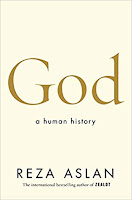skip to main |
skip to sidebar
Democritus (c. 460 BCE - 370 BCE) was an Ancient Greek pre-Socratic philosopher primarily remembered today for his formulation of an atomic theory of the universe. Democritus was born in Abdera, Thrace, around 460 BC, although there are disagreements about the exact year.
Gian Francesco Poggio Bracciolini (11 February 1380[2] – 30 October 1459), best known simply as Poggio Bracciolini, was an Italian scholar and an early humanist. He was responsible for rediscovering and recovering a great number of classical Latin manuscripts, mostly decaying and forgotten in German, Swiss, and French monastic libraries. His most celebrated find was De rerum natura, the only surviving work by Lucretius.
Titus Lucretius Carus (c. 99 BCE - 55 BCE) was a Roman poet and philosopher. His only known work is the philosophical poem De rerum natura, a didactic work about the tenets and philosophy of Epicureanism, and which is usually translated into English as On the Nature of Things.






quantumsync
Abe's Axe is a symbol. Like the firey wand of Hermes, it is the conduit for bringing into action manifestations from the creative imagination. He is not killing vampires so much as freeing living dead men. The great emancipator would like to bring you into the 4th dimension of consciousness. He is going to have to kill you to do this, though. Or, actually, just annihilate your ego to transport you. In this instance, his axe is the craft. A craft is both a transport and a skill. The magician's wand is both. A pen can be mightier than the sword. What's your craft? Use your symbol well. . .

































